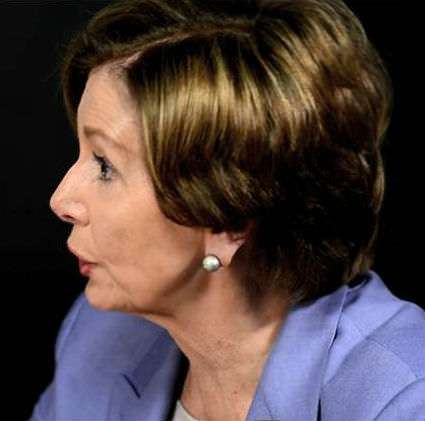Pelosi: Pot Federalism, Si; Gun Federalism, No

Back in 2010, when she was speaker of the House, Rep. Nancy Pelosi (D-Calif.) took no position on Proposition 19, the marijuana legalization initiative that California voters rejected that fall. But Pelosi, now the House minority leader, is taking a stand against federal interference with implementation of the marijuana legalization initiatives that voters in Colorado and Washington approved last November. In a recent interview with The Denver Post, Pelosi said the feds should facilitate the new regulatory regime rather than trying to undermine it:
Regarding the states that have medical marijuana or recreational marijuana as the law of their states, I think that has to be respected. I think [the government should] tax and regulate. And in order to do that, there has to be a level of respect for the fact that if you are going to have recreational marijuana, somebody is in business to do that and they have to have tax treatment in order for them to function as a business. So how the state of Colorado interacts with the federal government on the taxation issues is something they have to work out, but I think they should….
The state [Colorado] has spoken. The law has been passed. There are issues with taxation and regulation, and we need to get on with it.
The taxation issue to which Pelosi refers is a federal rule that bars marijuana growers and sellers from deducting their business expenses when they file their income tax returns, which is a serious (though not insurmountable) financial barrier for cannabis entrepreneurs. Pelosi's willingness to let states go their own way on receational marijuana is consistent with her criticism of raids on medical marijuana dispensaries. But there are limits to her embrace of federalism. In the same Denver Post interview, for instance, she advocates a federal ban on "assault magazines," which presumably would be enforced even in states that want to let people buy ammunition feeding devices that hold more than 10 rounds.
Pelosi notes that some Republicans agree the federal government should not try to override the will of voters in Colorado and Washington. In the July 2012 issue of Reason, I argued that progressives and conservatives should unite against an overweening federal government.
[Thanks to Allen St. Pierre for the tip.]


Show Comments (109)